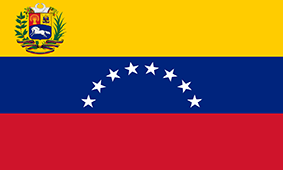
Repsol received more crude from Venezuela in July

Five cargoes were sent as payment for the gas supplied to the Venezuelan mainland in the first seven months of this year, and covered 45pc of the outstanding receivables from Cardon IV due over the period, according to Repsol's chief executive Josu Jon Imaz.
Repsol continues to receive a crude cargo a month from PdV related to the Spanish firm's upstream crude assets in the country. The firm took one shipment every month over the first half of 2019 in payment for its stake in the Petroquiriquire heavy crude joint venture, Imaz said. PdV has committed to sending Repsol some 7,000 b/d of crude for its participation in the project, he said.
Repsol received 40,000 b/d of Venezuelan crude in January-May, while sending some 7,400 b/d of gasoline to the country as payment for the volumes received in excess of the amount of crude agreed under the deal, according to data from Spain's state-owned petroleum reserves corporation Cores.
The payment in fuel for excess crude received is a usual practice in crude trading since tankers tend to be fully loaded at the export terminal before departure.
Repsol's dealings with crisis-hit Venezuela are being monitored closely by the US as it attempts to tighten sanctions on President Nicolas Maduro's regime. In May, Repsol paid for the excess crude received in diesel instead of gasoline after liaising with the US government.
Repsol has managed to further reduce its exposure to Venezuela through the crude-for-debt deal and by writing down the value of its assets in the country. Its total exposure to Venezuela fell to $447mn at the end of the first half of this year, from $522mn at the end of 2018.


Gold price edges up as market awaits Fed minutes, Powell speech

Glencore trader who led ill-fated battery recycling push to exit

Emirates Global Aluminium unit to exit Guinea after mine seized

UBS lifts 2026 gold forecasts on US macro risks

Iron ore price dips on China blast furnace cuts, US trade restrictions

Roshel, Swebor partner to produce ballistic-grade steel in Canada

US hikes steel, aluminum tariffs on imported wind turbines, cranes, railcars

EverMetal launches US-based critical metals recycling platform

Afghanistan says China seeks its participation in Belt and Road Initiative

First Quantum drops plan to sell stakes in Zambia copper mines

Ivanhoe advances Kamoa dewatering plan, plans forecasts

Texas factory gives Chinese copper firm an edge in tariff war

Pan American locks in $2.1B takeover of MAG Silver

Iron ore prices hit one-week high after fatal incident halts Rio Tinto’s Simandou project

US adds copper, potash, silicon in critical minerals list shake-up

Barrick’s Reko Diq in line for $410M ADB backing

Gold price gains 1% as Powell gives dovish signal

Electra converts debt, launches $30M raise to jumpstart stalled cobalt refinery

Gold boom drives rising costs for Aussie producers

First Quantum drops plan to sell stakes in Zambia copper mines

Ivanhoe advances Kamoa dewatering plan, plans forecasts

Texas factory gives Chinese copper firm an edge in tariff war

Pan American locks in $2.1B takeover of MAG Silver

Iron ore prices hit one-week high after fatal incident halts Rio Tinto’s Simandou project

US adds copper, potash, silicon in critical minerals list shake-up

Barrick’s Reko Diq in line for $410M ADB backing

Gold price gains 1% as Powell gives dovish signal

Electra converts debt, launches $30M raise to jumpstart stalled cobalt refinery

















